 If you ever needed proof of the power of traditional storytelling – especially in a fantasy setting – Dororo is all you could ever ask for. This show is pure and straightforward brilliance, in many ways very simple in design despite the subtlety and complexity of the story. You don’t have to reinvent or revolutionize to achieve greatness in anime – you just have to be great, and Dororo is great. It ranks considerably ahead of any 2018 series for me, and if the second cour is on par with the first (or Goc help us, better) 2019 is going to have a very hard time topping it.
If you ever needed proof of the power of traditional storytelling – especially in a fantasy setting – Dororo is all you could ever ask for. This show is pure and straightforward brilliance, in many ways very simple in design despite the subtlety and complexity of the story. You don’t have to reinvent or revolutionize to achieve greatness in anime – you just have to be great, and Dororo is great. It ranks considerably ahead of any 2018 series for me, and if the second cour is on par with the first (or Goc help us, better) 2019 is going to have a very hard time topping it.
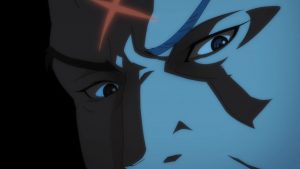 Unfortunately we’re looking and a one-week break before the second cour starts (hardly unusual), so we’re going to have to chew on what happened this week for a while. Once more the narrative structure here is as traditional as it gets – the first cour was used to introduce all the players in the game, and set up the board. We now understand exactly what’s at stake here, and mostly understand the people whose lives hang in the balance. The second cour is the reckoning, when everyone will have to live with the decisions they’ve made, and irreconcilable desires will clash violently.
Unfortunately we’re looking and a one-week break before the second cour starts (hardly unusual), so we’re going to have to chew on what happened this week for a while. Once more the narrative structure here is as traditional as it gets – the first cour was used to introduce all the players in the game, and set up the board. We now understand exactly what’s at stake here, and mostly understand the people whose lives hang in the balance. The second cour is the reckoning, when everyone will have to live with the decisions they’ve made, and irreconcilable desires will clash violently.
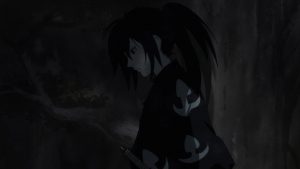 The first cour closes with everyone coming together in a dramatic crescendo, the blast wave sending them all flying once more in separate directions as the second starts. The Banmon gate sits at the heart of all this – the dividing line between Ishikawa and Asakura, between Sukeroku and his family, between this world and the next. It symbolizes the contract Daigo has made, and its impact in the human world. It’s more than merely fitting that the first meeting in 16 years between Hyakkimaru and Daigo – and yes, Oka as well – should happen here. It’s impossible that it could have happened anywhere else.
The first cour closes with everyone coming together in a dramatic crescendo, the blast wave sending them all flying once more in separate directions as the second starts. The Banmon gate sits at the heart of all this – the dividing line between Ishikawa and Asakura, between Sukeroku and his family, between this world and the next. It symbolizes the contract Daigo has made, and its impact in the human world. It’s more than merely fitting that the first meeting in 16 years between Hyakkimaru and Daigo – and yes, Oka as well – should happen here. It’s impossible that it could have happened anywhere else.
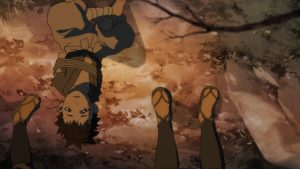 There’s no question that Tezuka is playing hardball with the moral ambiguities here, up to and including Daigo’s choice (though I have very strong feelings about that, personally). Dororo has many roles in the story, but in this respect I think she represents a kind of survivor’s nobility. For Dororo there’s no time for philosophizing – she’s only ever had time to worry about staying alive. She has a clarity that stands out like a sore thumb in this setting, as when she and Sukeroku are taken prisoner by the Asakura patrols. Sukeroku has seen the ruins of his village and believes his family dead. The other Ishikawa prisoners are content to wait and hope that the divine protection their land seems to be under will extend to them. But Dororo relentlessly fights to live on, whatever it takes. That – and loyalty – are the beacon which draws her forward at all times.
There’s no question that Tezuka is playing hardball with the moral ambiguities here, up to and including Daigo’s choice (though I have very strong feelings about that, personally). Dororo has many roles in the story, but in this respect I think she represents a kind of survivor’s nobility. For Dororo there’s no time for philosophizing – she’s only ever had time to worry about staying alive. She has a clarity that stands out like a sore thumb in this setting, as when she and Sukeroku are taken prisoner by the Asakura patrols. Sukeroku has seen the ruins of his village and believes his family dead. The other Ishikawa prisoners are content to wait and hope that the divine protection their land seems to be under will extend to them. But Dororo relentlessly fights to live on, whatever it takes. That – and loyalty – are the beacon which draws her forward at all times.
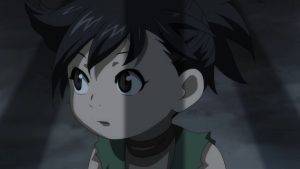 As I mentioned last week, Tahoumaru is the veritable tipping-point state here. If it weren’t for the impossibly raw deal his brother has gotten in life, it would be easy to feel sorry for Tahoumaru – he didn’t ask for any of this, and clearly has the moral compass to realize that what his father has done is an obscene miscarriage of human decency. But Daigo is as relentless in manipulating his son’s loyalty as Dororo is in surviving – he paints it in no uncertain terms, to side with Hyakkimaru is to seek the destruction of the lands Tahoumaru was born to protect.
As I mentioned last week, Tahoumaru is the veritable tipping-point state here. If it weren’t for the impossibly raw deal his brother has gotten in life, it would be easy to feel sorry for Tahoumaru – he didn’t ask for any of this, and clearly has the moral compass to realize that what his father has done is an obscene miscarriage of human decency. But Daigo is as relentless in manipulating his son’s loyalty as Dororo is in surviving – he paints it in no uncertain terms, to side with Hyakkimaru is to seek the destruction of the lands Tahoumaru was born to protect.
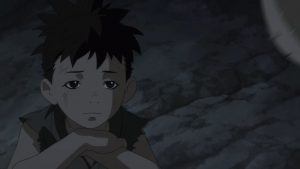 There’s a seductive quality to Daigo’s evil, no question about that – consequentialism always relies on that seduction as its strength. The choice he made has forced his second son into an impossible decision, and made the existence of his wife a constant misery. I don’t blame Tahoumaru for the choice he makes here – it’s disappointing but probably inevitable. The only question for him, really, is whether allowing himself to be forced onto the side of evil has made his own soul irredeemable. We saw what Daigo’s decision did to Oka – living with it will only destroy Tahoumaru slowly from the inside, too.
There’s a seductive quality to Daigo’s evil, no question about that – consequentialism always relies on that seduction as its strength. The choice he made has forced his second son into an impossible decision, and made the existence of his wife a constant misery. I don’t blame Tahoumaru for the choice he makes here – it’s disappointing but probably inevitable. The only question for him, really, is whether allowing himself to be forced onto the side of evil has made his own soul irredeemable. We saw what Daigo’s decision did to Oka – living with it will only destroy Tahoumaru slowly from the inside, too.
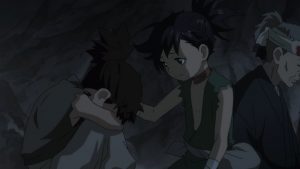 Acting as a sort of Greek chorus through all this is Biwamaru, who sees with the wide perspective no one else in the cast can share. He sees Tahoumaru and immediately realizes he’s Hyakkimaru’s brother, and all the pieces are really in place for him now. The fact that Biwamaru, with his wisdom and deep sight, can see no way out of this tragedy is telling. He has no illusions that he has any power to undo or rectify what Daigo has wrought – it’s a terrible destiny for all involved and as to himself, Biwamaru notes that it may be his destiny to observe it.
Acting as a sort of Greek chorus through all this is Biwamaru, who sees with the wide perspective no one else in the cast can share. He sees Tahoumaru and immediately realizes he’s Hyakkimaru’s brother, and all the pieces are really in place for him now. The fact that Biwamaru, with his wisdom and deep sight, can see no way out of this tragedy is telling. He has no illusions that he has any power to undo or rectify what Daigo has wrought – it’s a terrible destiny for all involved and as to himself, Biwamaru notes that it may be his destiny to observe it.
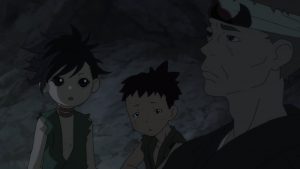 To me, there’s no more soul-crushing moment here than the tiny smile Hyakkimaru allows himself when he thinks of the mother he’s seen for the first time. And no more uplifting one than the resolution of Dororo, who single-handedly injects a drop of hope with her unwavering resolve to stay by Hyakkimaru’s side. As to the choice Oka makes, it too may have been inevitable the moment Daigo made his. Even she realizes she cannot be the one to bring ruin to her land by helping her son – all she can do is atone by offering her own life, whatever value that may still hold. It’s a brutal way to end things, but it’s not unfitting that Daigo should be given a small taste of the pain he’s inflicted by his literal deal with devils.
To me, there’s no more soul-crushing moment here than the tiny smile Hyakkimaru allows himself when he thinks of the mother he’s seen for the first time. And no more uplifting one than the resolution of Dororo, who single-handedly injects a drop of hope with her unwavering resolve to stay by Hyakkimaru’s side. As to the choice Oka makes, it too may have been inevitable the moment Daigo made his. Even she realizes she cannot be the one to bring ruin to her land by helping her son – all she can do is atone by offering her own life, whatever value that may still hold. It’s a brutal way to end things, but it’s not unfitting that Daigo should be given a small taste of the pain he’s inflicted by his literal deal with devils.
 Sukeroku, at least, is reunited with his mother – a small miracle in this world of brutality to see innocence rewarded. And hovering over all of this is the Kyuubi, a mysterious presence which I’m more convinced than ever is not Hyakkimaru’s enemy, or a force for evil. It’s Daigo who should fear it – and indeed, I believe he does, almost as much as he fears the son he sold to fuel his own ambitions. I have no doubt that we will see many more tragedies befall good people in the second season of Dororo, but I also believe that Daigo will face a reckoning in the end, and the dangerous worldview he represents will be repudiated.
Sukeroku, at least, is reunited with his mother – a small miracle in this world of brutality to see innocence rewarded. And hovering over all of this is the Kyuubi, a mysterious presence which I’m more convinced than ever is not Hyakkimaru’s enemy, or a force for evil. It’s Daigo who should fear it – and indeed, I believe he does, almost as much as he fears the son he sold to fuel his own ambitions. I have no doubt that we will see many more tragedies befall good people in the second season of Dororo, but I also believe that Daigo will face a reckoning in the end, and the dangerous worldview he represents will be repudiated.


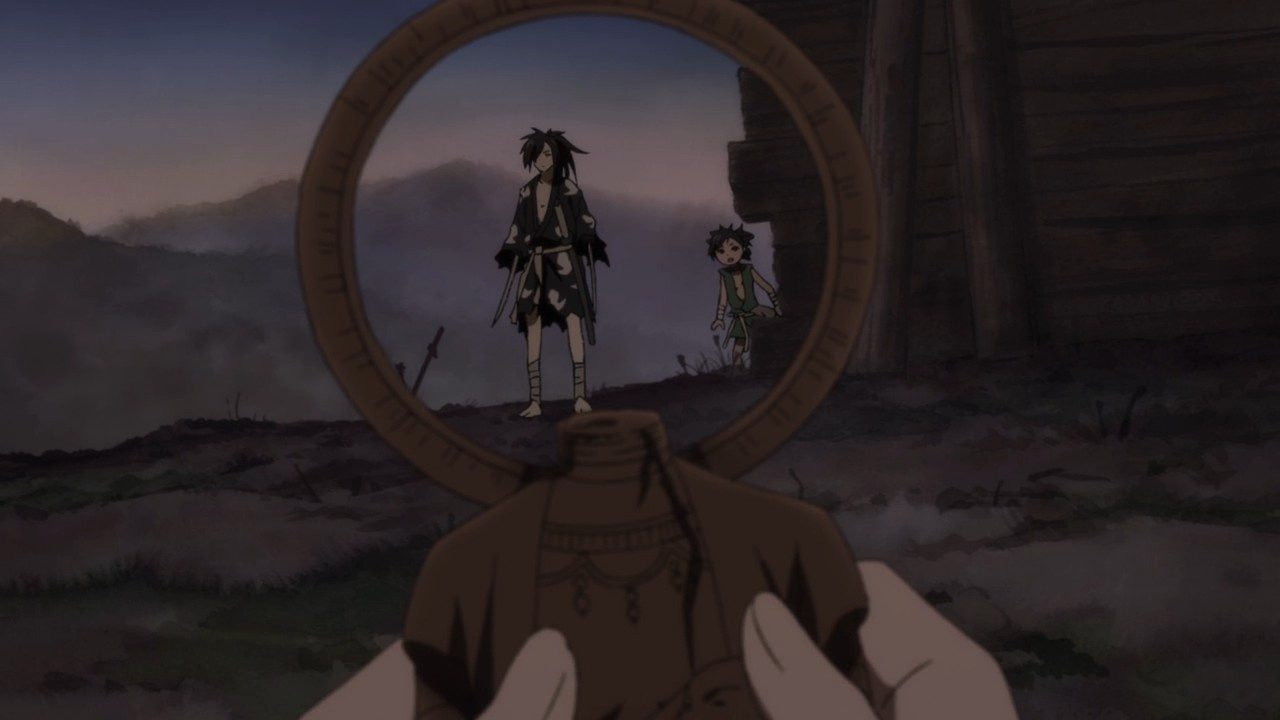
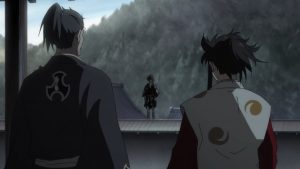
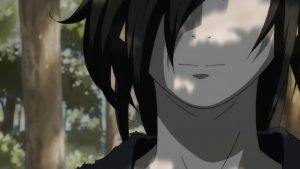

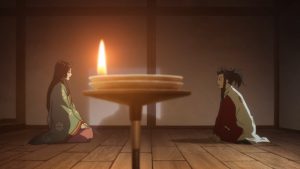
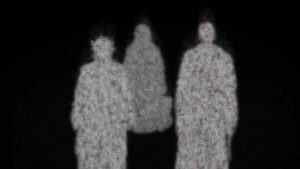
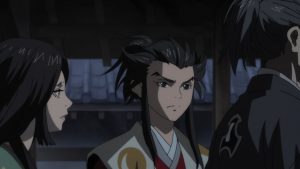
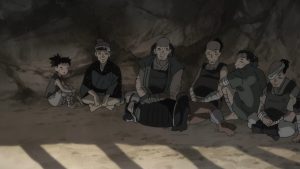
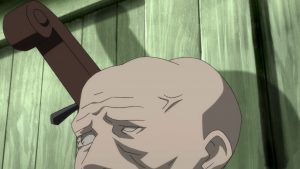
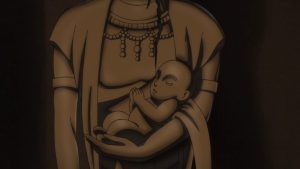

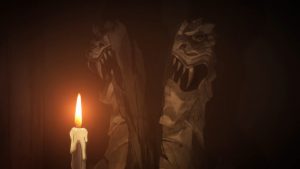
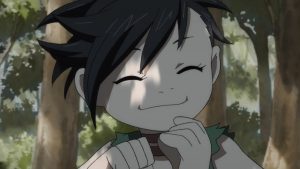
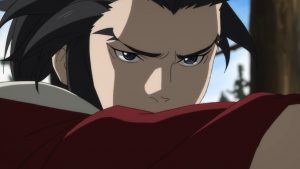
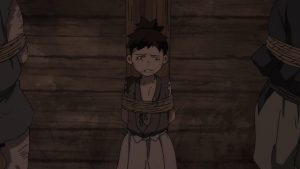
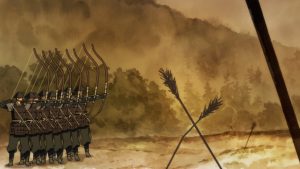
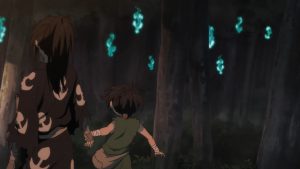


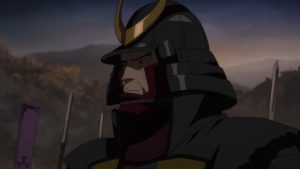

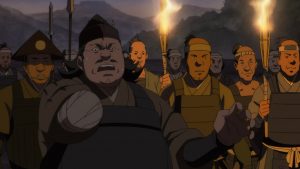
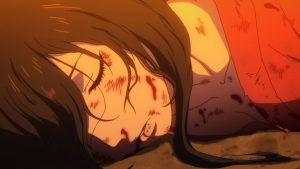
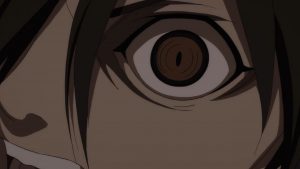
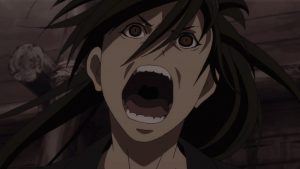
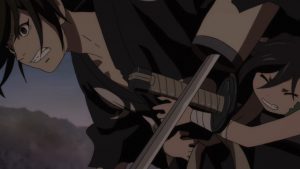
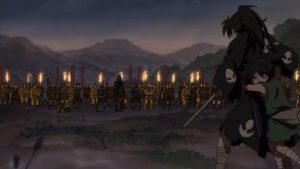
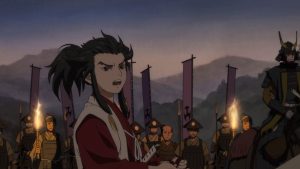
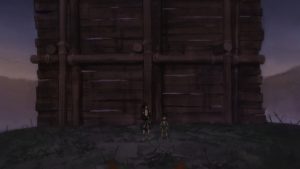
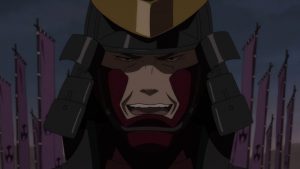
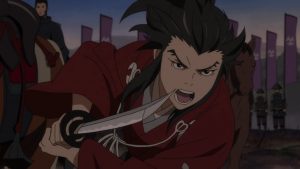
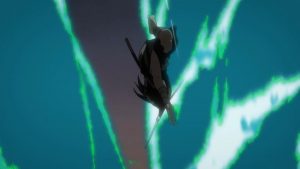
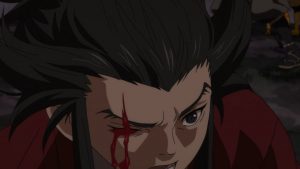
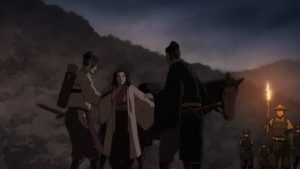
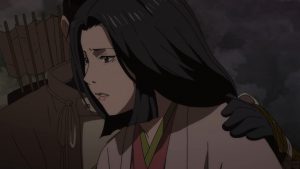
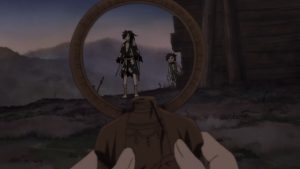
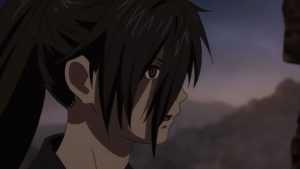
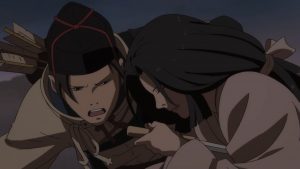


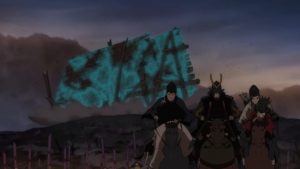

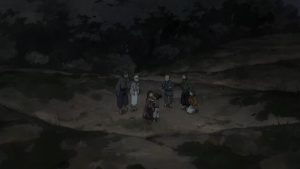

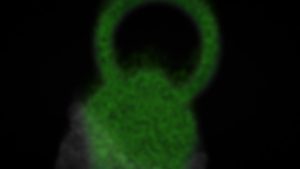

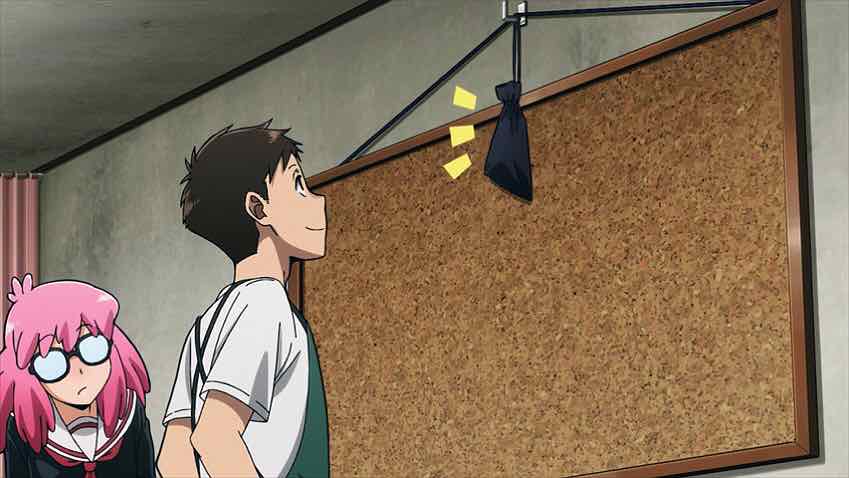
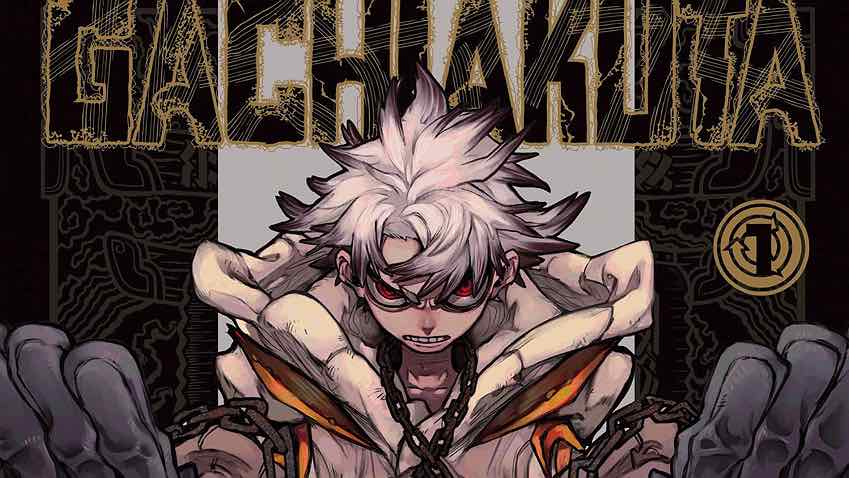
leongsh
March 26, 2019 at 8:27 pmThe episode that everything comes to a head. The episode that the past 11 episodes have been building up to. It more than met high expectations and then some.
Daigo is a lost cause. He is all in as he has long sold his soul. Tahomaru is cornered into making the choice that he acknowledges is morally reprehensible even to him but doing it for the land and people that will be his to rule over. “The needs of the many outweigh the needs of the one.”
Hyakkimaru’s mother lands the most devastating hit of them all. She acknowledges that she cannot save him, apologises for everyone for the pain that he has to go through, and for the cruelest hit or twist of the knife, tells him that they will continue to feed on him. She also tries to commit seppuku to atone for it but not successful.
I posted my reaction in reddit and I will post it here as well:
For all the positives of this episode, particularly on storytelling, this episode has one major downside for me – this is the last episode we will have amazarashi’s exceptional haunting on-point song, “Sayonara Gokko”, as the ending song (T_T)
Guardian Enzo
March 26, 2019 at 9:45 pmYes, I love that ED. Counter-balancing that is that we’ll finally be rid of “Give Me Fire” or whatever that atrocity of an OP is called (though I do love the animation sequence).
Miyu Fan
March 26, 2019 at 10:12 pmI hate how Lord Daigo referred to Hyakkimaru as the demon. He doesn’t even bother to sacrifice himself just to extend the deal with the demons, at least Tahoumaru tried to break the deal before he decided to follow his father. Oka got it right when she said that the people had to devour Hyakkimaru, making them the demons in this case.
Poor Hyakkimaru losing his mother when he just met her, but at least he knows that his mother truly loves him.
Guardian Enzo
March 26, 2019 at 10:54 pmWhich, in truth, is something Tahoumaru will never know. Not that he deserves that.
bnbros
March 27, 2019 at 8:21 amThe whole truth about Daigo’s deal with the demon’s was pretty much blurted out in front of his soldiers, so I wonder if this will eventually spread to the unknowing populace who sing praises of his deeds. Either way, we’re in for a one heck of a spectacle in the second cour.
Guardian Enzo
March 27, 2019 at 10:01 amYes, the truth is out there now, though I’m not sure (literally not sure) how much impact it would have with the general populace. One thing’s for certain – even if he’s supporting a decision he hates, Tahoumaru will lose any respect or affection he had for his father. And now perhaps he can come to terms with his mother’s lack of love for him, since he knows the reason behind it.
bnbros
March 27, 2019 at 12:54 pmI really like how Tahoumaru has been fleshed out as a more complex character than I had initially perceived him as. And according to manga readers, this additional characterization is also anime original since manga Tahoumaru apparently hated Hyakkimaru out of jealousy and resentment, nothing more.
Guardian Enzo
March 27, 2019 at 1:00 pmYes, I’ve heard that too and I think this is frankly much more interesting.
Scampi
March 27, 2019 at 2:31 pmApparently Sukeroku was killed in the manga, I’m really glad for the iteration the anime staff has wrought because Tezuka’s works have a…relentless vibe that I find hard to agree with.
A.Sade
March 27, 2019 at 9:06 pmI rather wish they’d keep that, though. Call me a sadist but the optimism has been running a little high for me, the cutthroat threat of the first few episodes seems to have faded a little after Mio. And the allegory of Banmon being the division between the two Koreas was played down too, though they did something interesting in-universe to it.
Ronbb
March 29, 2019 at 10:21 amHow I wish I could give Hyakkimaru a hug… Dororo’s last line saved me a little…at least they have each other to depend on.